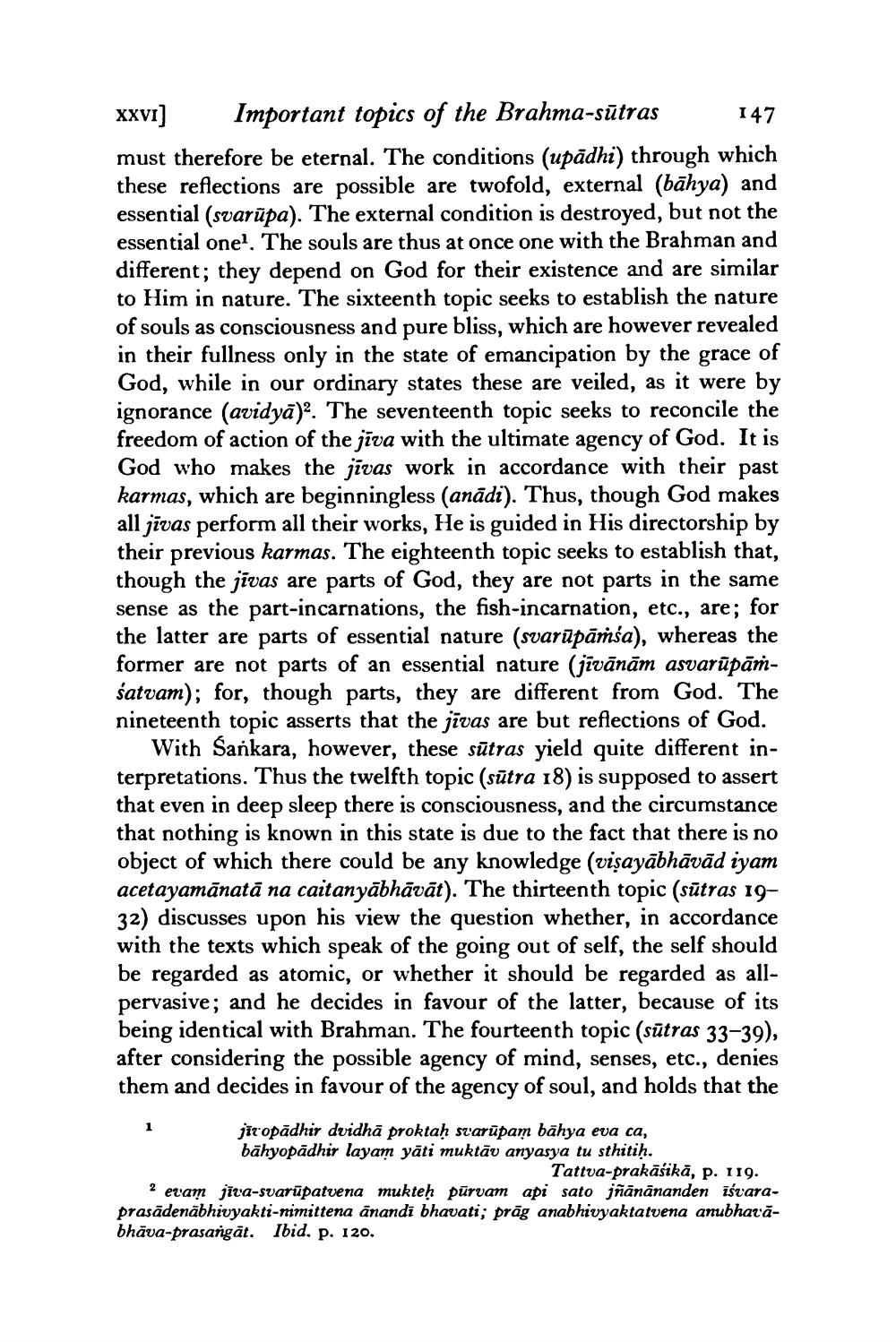________________
XXVI] Important topics of the Brahma-sūtras 147 must therefore be eternal. The conditions (upādhi) through which these reflections are possible are twofold, external (bāhya) and essential (svarūpa). The external condition is destroyed, but not the essential one?. The souls are thus at once one with the Brahman and different; they depend on God for their existence and are similar to Him in nature. The sixteenth topic seeks to establish the nature of souls as consciousness and pure bliss, which are however revealed in their fullness only in the state of emancipation by the grace of God, while in our ordinary states these are veiled, as it were by ignorance (avidyā). The seventeenth topic seeks to reconcile the freedom of action of the jīva with the ultimate agency of God. It is God who makes the jīvas work in accordance with their past karmas, which are beginningless (anādi). Thus, though God makes all jīvas perform all their works, He is guided in His directorship by their previous karmas. The eighteenth topic seeks to establish that, though the jīvas are parts of God, they are not parts in the same sense as the part-incarnations, the fish-incarnation, etc., are; for the latter are parts of essential nature (svarūpāṁśa), whereas the former are not parts of an essential nature (jīvānām asvarūpāṁśatvam); for, though parts, they are different from God. The nineteenth topic asserts that the jīvas are but reflections of God.
With Sankara, however, these sūtras yield quite different interpretations. Thus the twelfth topic (sūtra 18) is supposed to assert that even in deep sleep there is consciousness, and the circumstance that nothing is known in this state is due to the fact that there is no object of which there could be any knowledge (visayābhāvād iyam acetayamānatá na caitanyābhāvāt). The thirteenth topic (sūtras 19– 32) discusses upon his view the question whether, in accordance with the texts which speak of the going out of self, the self should be regarded as atomic, or whether it should be regarded as allpervasive; and he decides in favour of the latter, because of its being identical with Brahman. The fourteenth topic (sūtras 33–39), after considering the possible agency of mind, senses, etc., denies them and decides in favour of the agency of soul, and holds that the
jiropādhir dvidhā proktaḥ svarūpam bāhya eva ca, bāhyopādhir layam yāti muktāv anyasya tu sthitih.
Tattva-prakāśikā, p. 119. 2 eram jīva-svarūpatvena mukteh pūrvam api sato jñānānanden iśvaraprasādenābhivyakti-nimittena ānandi bhavati; prāg anabhivyaktatvena anubharabhāva-prasangāt. Ibid. p. 120.




